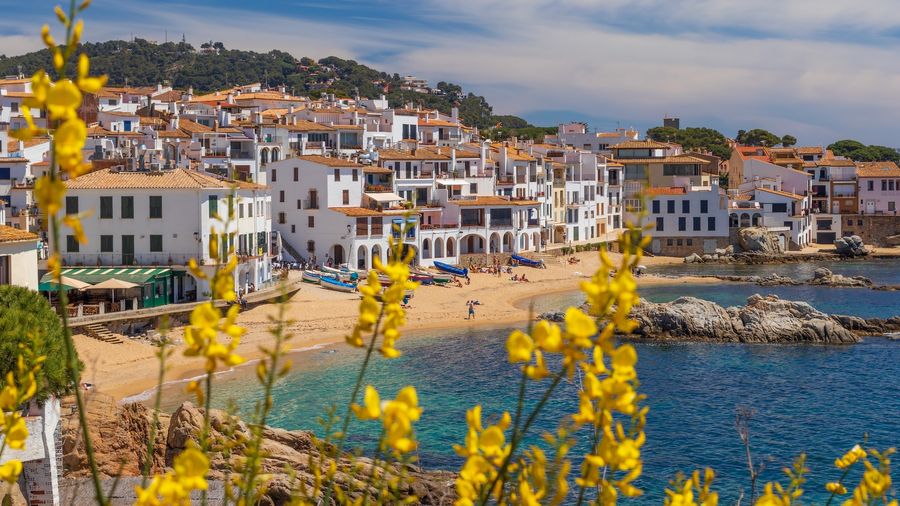Purchasing A Home In Spain As A Non-EU Resident
Non-EU residents are subject to different rules and regulations than EU residents when it comes to buying property in Spain, so what steps can non-EU residents take to make the process of purchasing property in Spain easier and more straightforward?

Buying a home in Spain as a Non-EU resident
Spain is a popular destination for people looking to buy property abroad, and for good reason. With its beautiful beaches, rich culture, and pleasant climate, Spain offers a lifestyle that is envied by many. But for non-EU residents, buying property in Spain can be a complex process, with many rules and regulations to navigate.
Fortunately, there are steps that non-EU residents can take to make the process of purchasing property in Spain easier and more straightforward. In this article, we’ll provide an overview of the process and offer tips and advice for non-EU residents who want to buy property in Spain.
First, it’s important to understand that non-EU residents are subject to different rules and regulations than EU residents when it comes to buying property in Spain. Non-EU residents are considered “foreign investors,” and as such, they may be subject to restrictions on the type of property they can buy and the amount of money they can invest.
However, non-EU residents are not barred from buying property in Spain altogether. In fact, there are several ways that non-EU residents can purchase property in Spain, including:
-
Buying through a company: Non-EU residents can buy property in Spain by setting up a Spanish company and purchasing the property through the company. This can be a complex process, and it may require the assistance of a lawyer or other professional. However, it can also provide certain benefits, such as tax advantages and protection of personal assets.
-
Buying through a trust: Non-EU residents can also buy property in Spain by setting up a trust and purchasing the property through the trust. A trust is a legal arrangement in which a person or entity (the “trustee”) holds property on behalf of another person or entity (the “beneficiary”). Trusts can be useful for a variety of purposes, including asset protection and estate planning.
-
Buying through a power of attorney: Non-EU residents can also buy property in Spain by giving a power of attorney to a trusted friend or relative who is an EU resident. A power of attorney is a legal document that allows the person named in the document (the “attorney-in-fact”) to act on behalf of the person who gives the power of attorney (the “principal”). This can be a useful option for non-EU residents who want to buy property in Spain but are unable to do so themselves due to legal restrictions.
Once non-EU residents have chosen a way to purchase property in Spain, they will need to take several steps to complete the process. These steps may include:
-
Finding a property: Non-EU residents will need to find a property that meets their needs and fits their budget. This can involve searching listings, visiting properties, and negotiating with sellers.
-
Obtaining a mortgage: Non-EU residents who need financing to purchase property in Spain will need to apply for a mortgage. This can be a complex process, and it may require the assistance of a mortgage broker or other professional. With Hypotea, you can apply for pre-approval and receive multiple offers from banks in the country where you want to buy. This saves you time and hassle, and allows you to compare offers and choose the best one for your needs. Non-EU residents may also need to provide additional documentation and information to obtain a mortgage in Spain.
-
Completing the purchase: Once non-EU residents have found a property and obtained financing, they will need to complete the purchase. This can involve signing a purchase contract, paying a deposit, and transferring the funds to the seller. Non-EU residents may also need to pay taxes and fees associated with the purchase.
In conclusion, non-EU residents can purchase property in Spain, but they may need to follow different rules.
What are the different rules then?
The specific rules and regulations that apply to non-EU residents purchasing property in Spain may vary depending on the location and type of property, as well as other factors. However, some common rules and regulations that may apply include:
-
Foreign investment restrictions: In some cases, non-EU residents may be subject to foreign investment restrictions, which may limit the amount of money they can invest in property in Spain. These restrictions may be imposed by the Spanish government or by other authorities.
-
Property ownership restrictions: Non-EU residents may also be subject to restrictions on the type of property they can own in Spain. For example, non-EU residents may be prohibited from buying certain types of property, such as agricultural land or historic buildings.
-
Tax obligations: Non-EU residents who purchase property in Spain may be required to pay taxes on their property, such as capital gains tax, property tax, and other taxes. The specific tax obligations that apply may vary depending on the location and type of property, as well as other factors.
-
Legal requirements: Non-EU residents who purchase property in Spain may be required to comply with various legal requirements, such as obtaining permits or licenses, registering the property, and complying with building codes and zoning regulations. Failure to comply with these requirements can result in fines, penalties, or other consequences.
In general, non-EU residents who want to purchase property in Spain should carefully research the rules and regulations that apply to their situation and seek the advice of a qualified professional if necessary. This can help ensure that they are able to complete the purchase process smoothly and avoid any legal or financial problems.







